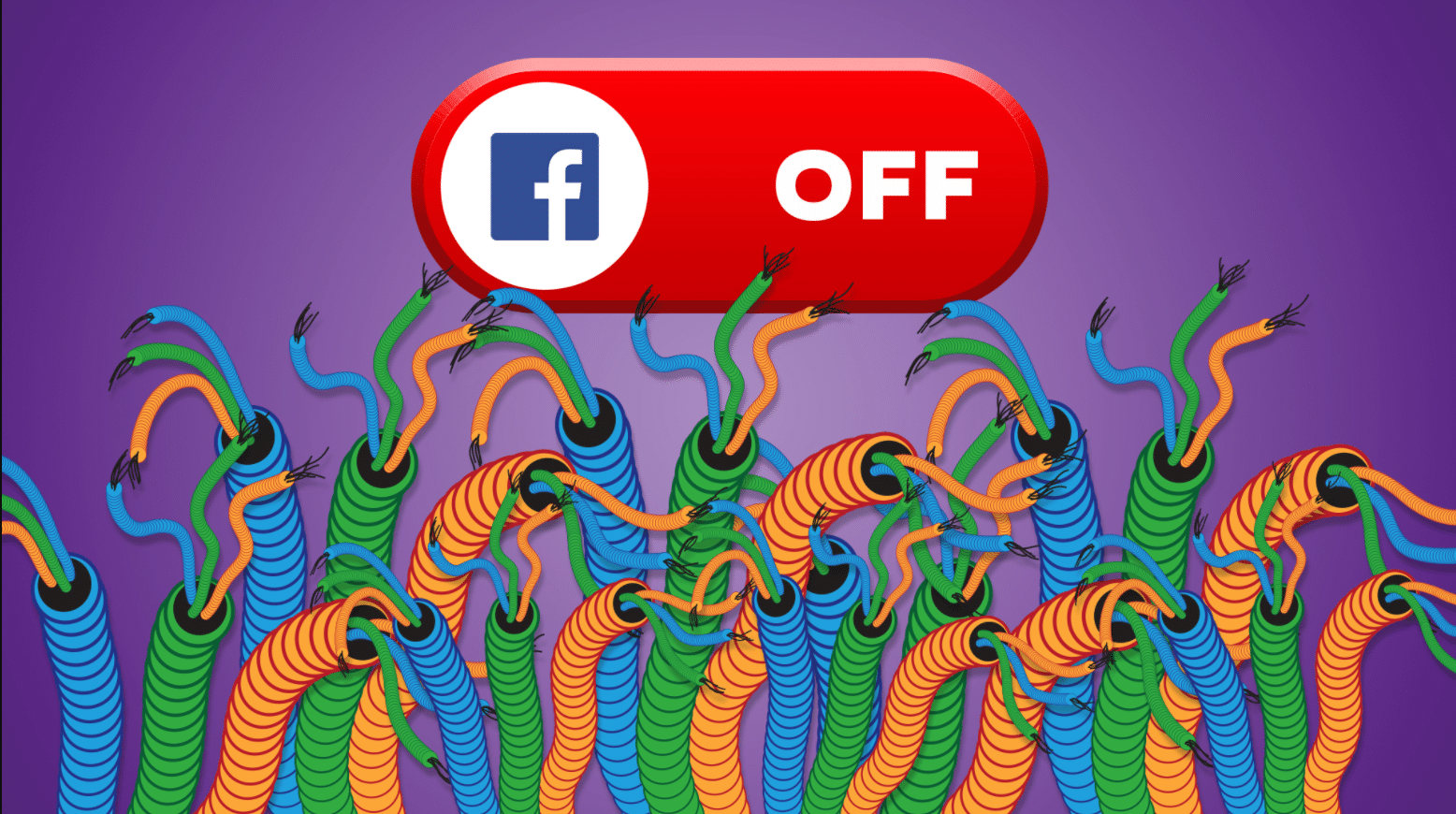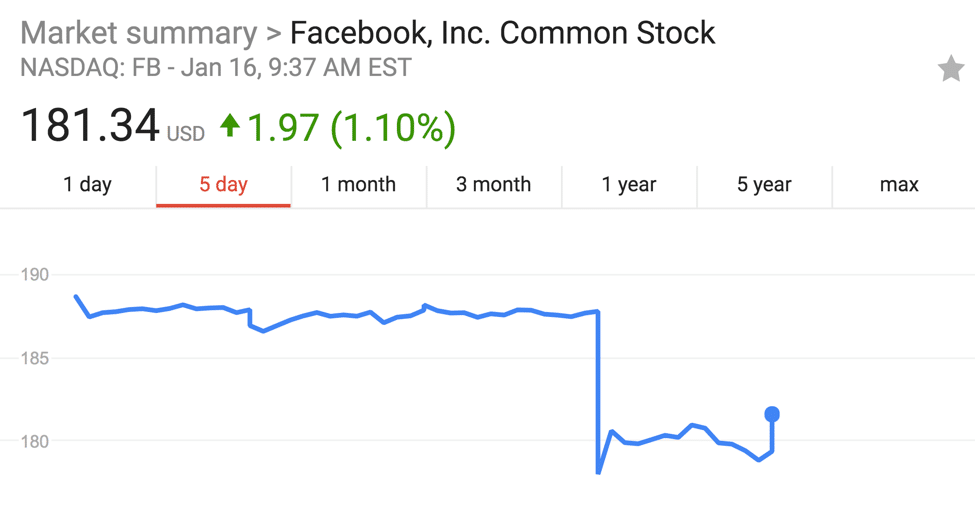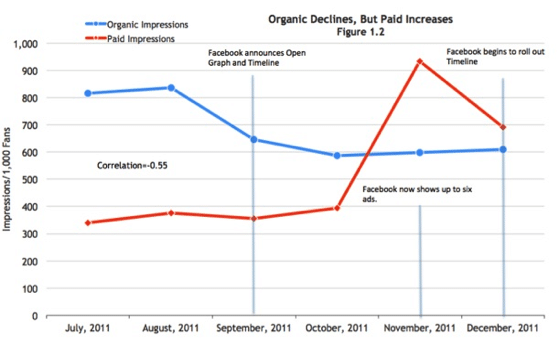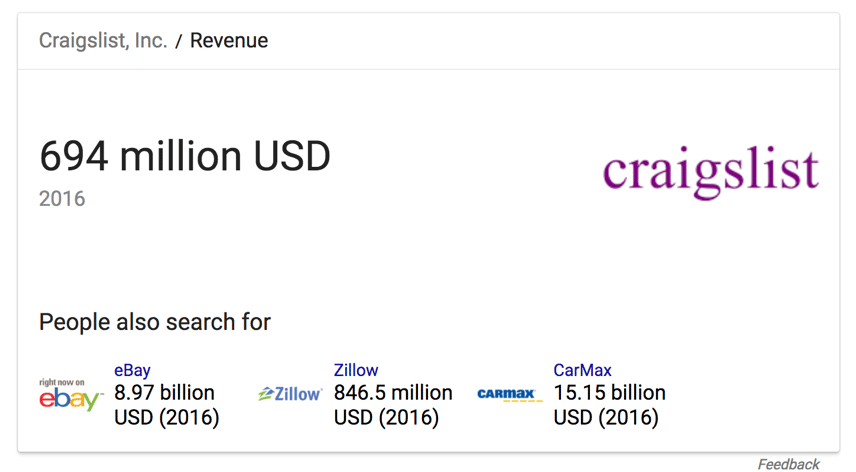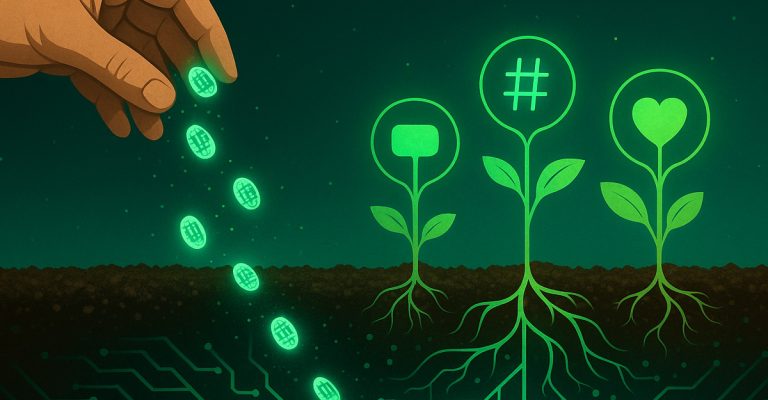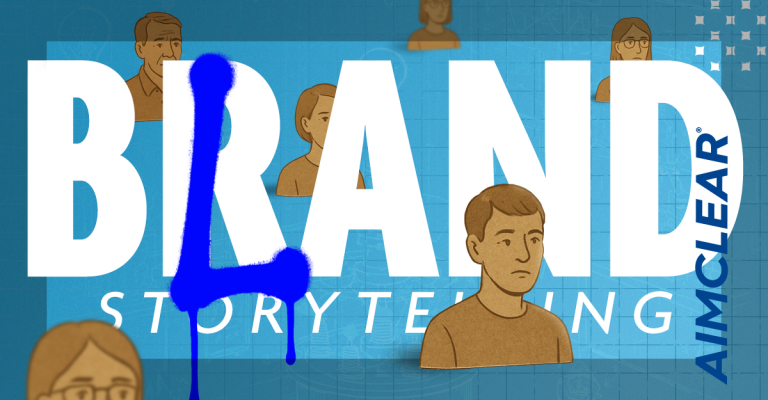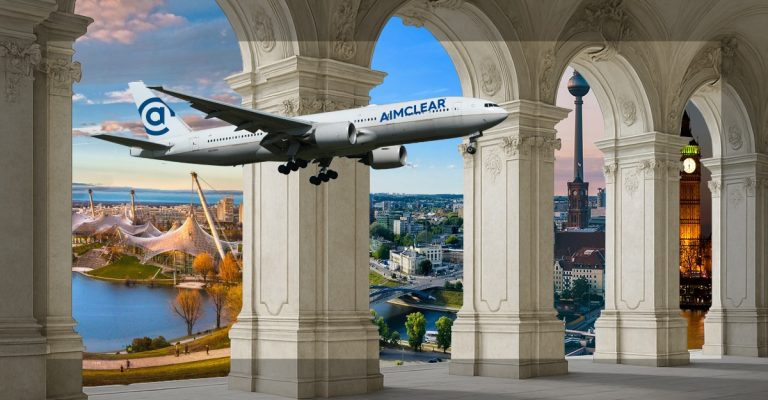On January 11, Mark Z shared that Facebook will show “less public content like posts from businesses, brands, and media” in your newsfeed. There’s been an onslaught of complaints from publishers, brands, journalists and other invested players. From a FB user perspective, less publisher content may be a good thing. Lots of FB users want to see more content from their friends.
Yet ANOTHER conversation about lost organic prominence is a tempest in a teapot, a non-starter, so boring we barely noticed.
For Facebook the company, this is a big and necessary step to retain users and attract new ones. Management knows what they’re doing. Putting the friendship back in Facebook was perhaps a matter of life or slow death as FB walks a thin line. The move has already cost FB serious stock devaluation, at least short term (it will likely rebound, so now might be the time to buy).
Publishers whose undies are currently bunched up over recent (and upcoming) traffic losses, may not have been paying much attention to the Internet all these years…same organic sinkhole, new year. It’s kind of a blood sport to watch publishers scramble to replace traffic lost. Yes, it’s true. Free Facebook distribution for publishers is neutered, even to their followers. However, distress concerning lost organic publisher traffic is neither new nor news.
Let’s think back.
If we’ve learned one thing over the years, don’t depend on free traffic from any channel long-term. Why? For the history of the Internet, most every search and social channel, platform, community, engine and network that previously provided free (organic) social distribution took that prominence away – replacing free with paid ad units, often similar to previous organic units.
Facebook started major feed changes with an organic-content-smackdown early, as it prepared for that infamous IPO. Organic reduction was a perfect storm, in a good way for Facebook. FB needed to make money. Massive user-count meant there simply was not enough room in the newsfeed for every user to see all content from pages liked or even friends. Users and marketers were pissed.
By the fall of 2011, even as I was writing Killer Facebook Ads, marketers already noticed a profound drop in free Facebook company page post distribution, correlating to new visibility of rapidly growing Facebook Ads prominence. This graph from the same blog post clearly revealed FB’s metered organic visibility decline, in favor of radical advertising prioritization. FB wanted more money pre-IPO.
Marketers not schooled in Internet history were crushed, having spent large between 2007 and 2011, building up Facebook likes ostensibly to grock free customer distribution lists. A main goal of Facebook marketing in those days was posting on a company page and having all or most followers see it.
Sorry…bye bye dumbass, one-channel-trick-organic ponies.
In 2012, AIMCLEAR published a blog post entitled, Undressing The Secret Of Facebook: Paid Organic Is The New Black,” and I quote: “Goodbye, pure Facebook EdgeRank organic tactics. Hello, pay-through-your-nostrils-rank! Professional Facebook marketers have felt a distinct change coming on for months. Here’s the bad news first: It’s getting much harder to drive organic impressions in the newsfeed.” Since then publishers have been feeding on organic prominence scraps, with many brands becoming addicted. You see, at Facebook’s scale, even scraps can send notable traffic. Now FB is reducing the scraps.
By 2013, EdgeRank, FB’s organic algorithm, which prioritized content in your Facebook feed, had essentially been replaced by a more complex feed ranking formula, taking into account more than 100 variables. Free FB prominence for publishers was an endangered species. Over the next four years, publishers enjoyed relative equilibrium with transient increases and decreases and even an uptick in news.
Facebook was, and is now dealing with the same riddle other major Internet players have been trying to navigate since the 90s – how to balance user retention/diminishing engagement with revenue. AltaVista invented paid search with keyword triggers for banner ads, became Overture and then Yahoo PPC. Google and YouTube were able to pivot from free to paid models. MySpace didn’t make the cut because advertising units were crap and didn’t work well for marketers. StumbleUpon, del.ico.us, Digg, MyBlogLog and a cornucopia of graveyard also-rans failed to scale from organic to paid models. Just look where these channels are today – either dead and buried or mostly irrelevant.
Notable exceptions to the rule are Reddit and Craigslist, which seemingly flourish with lavish user engagement, but not necessarily plush in revenue compared to other players.
Here are the most important takeaways and steps to take:
- We’d have to be nuts to depend long-term on any channel’s free traffic, without planning how to buy the traffic from the same source later. That’s like ceding Facebook controlling equity in your firm.
- Finding free channels to feed your business is a high stakes game of Whack a Mole. Treat it as such or you might trash your business.
- On the Internet, free lunch is only for the rare radically clever content marketer. Create content to take the world by storm. It’ll be all over Facebook for free, even without ads.
- Everyone else, get out your wallet and buy FB traffic with organic-feeling ads driven by an editorial calendar as others have for years.
- Facebook is still awesome, the intersection of paid and earned social media, the epicenter of the psychographic targeting universe. Paid FB works well, even for mediocre content that serves a purpose.
- Take inventory of all free traffic sources and plan for the day when the channel generating the traffic decides to monetize.
- Consider focusing free traffic initiatives on social channels such as Reddit, which have demonstrated a commitment (or need) to remaining mostly organic and survivd.
All this is not to say that free prominence is not important. It is. Marketers still should include organic search and social marketing in the mix as appropriate. Using your personal FB account to keep business/social relationships makes a lot of sense. In my case, the majority of personal friends are from business.
However, anyone who depends on free Facebook or any-channel organic prominence for business, expecting it to last, must be new to the internet marketing grind.
Hell, this is the same media conundrum publishers faced before the Internet, as newspapers pondered the balance of ads, news, obituaries, local sports and human-interest stories.
At AIMCLEAR we’ve been preaching and practicing the concept of “paid organic” feeling social ad units since 2011 to great success. There are ways to buy Facebook ads with first touch costing as low as $.01 cent, literally. If you want your traffic back for inexpensive aggregate, attributable costs just pony up the loot and bring some skills. FB media spend won’t cost much in the overall scheme of things and can often result in generating many more brand searches, which after all is one of the ultimate marketing goals.
